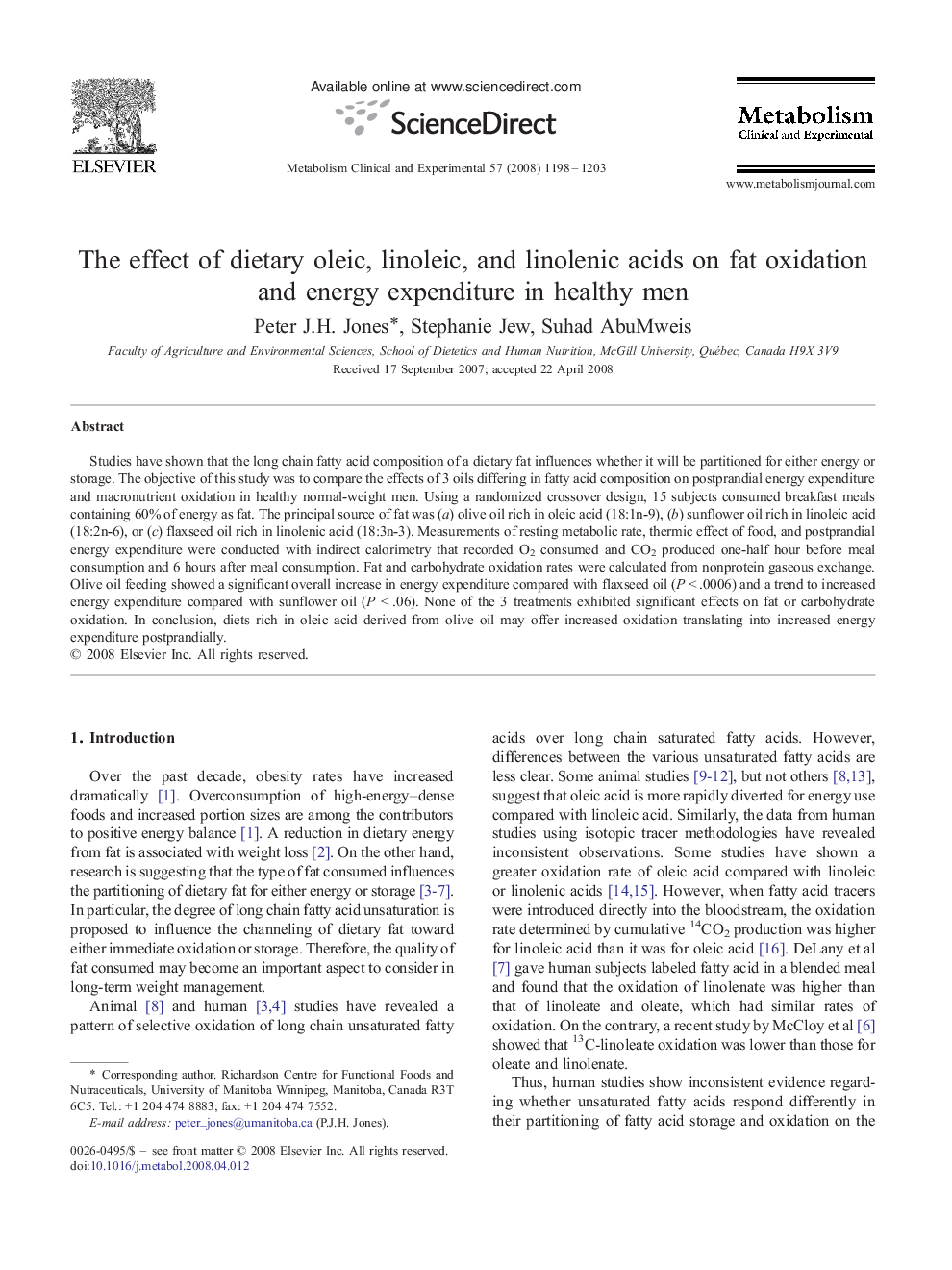| کد مقاله | کد نشریه | سال انتشار | مقاله انگلیسی | نسخه تمام متن |
|---|---|---|---|---|
| 2806662 | 1157129 | 2008 | 6 صفحه PDF | دانلود رایگان |

Studies have shown that the long chain fatty acid composition of a dietary fat influences whether it will be partitioned for either energy or storage. The objective of this study was to compare the effects of 3 oils differing in fatty acid composition on postprandial energy expenditure and macronutrient oxidation in healthy normal-weight men. Using a randomized crossover design, 15 subjects consumed breakfast meals containing 60% of energy as fat. The principal source of fat was (a) olive oil rich in oleic acid (18:1n-9), (b) sunflower oil rich in linoleic acid (18:2n-6), or (c) flaxseed oil rich in linolenic acid (18:3n-3). Measurements of resting metabolic rate, thermic effect of food, and postprandial energy expenditure were conducted with indirect calorimetry that recorded O2 consumed and CO2 produced one-half hour before meal consumption and 6 hours after meal consumption. Fat and carbohydrate oxidation rates were calculated from nonprotein gaseous exchange. Olive oil feeding showed a significant overall increase in energy expenditure compared with flaxseed oil (P < .0006) and a trend to increased energy expenditure compared with sunflower oil (P < .06). None of the 3 treatments exhibited significant effects on fat or carbohydrate oxidation. In conclusion, diets rich in oleic acid derived from olive oil may offer increased oxidation translating into increased energy expenditure postprandially.
Journal: Metabolism - Volume 57, Issue 9, September 2008, Pages 1198–1203